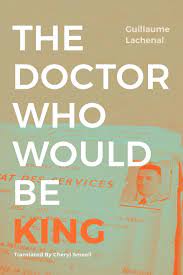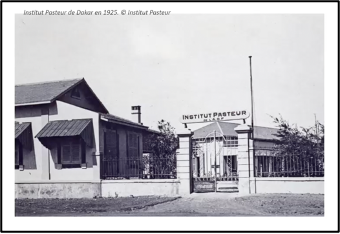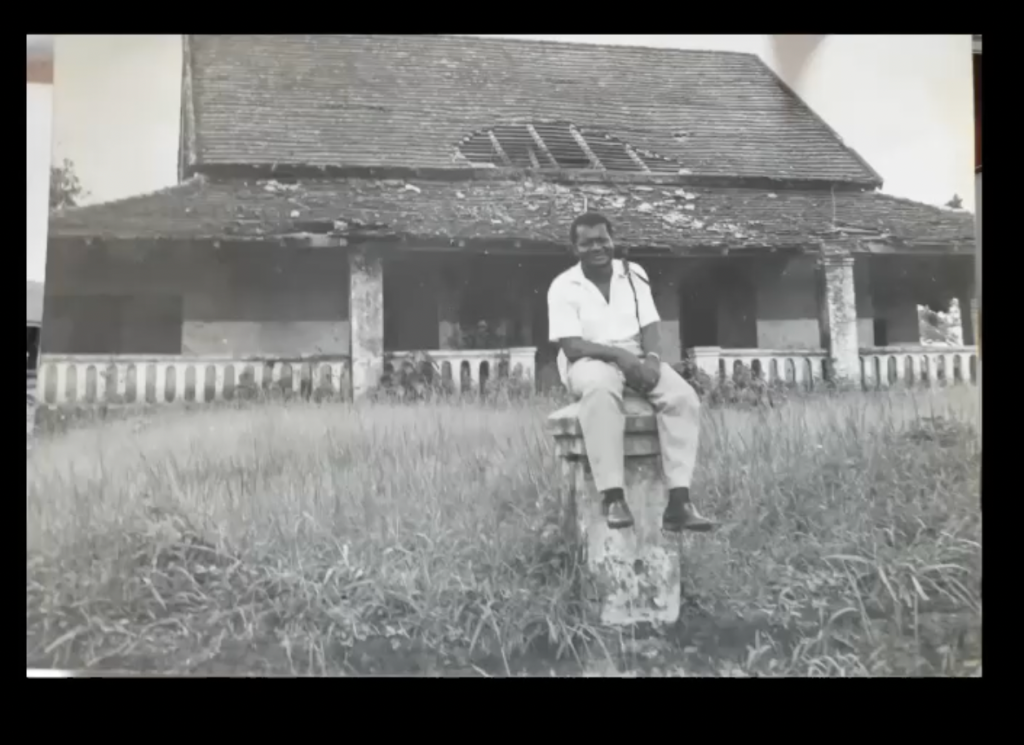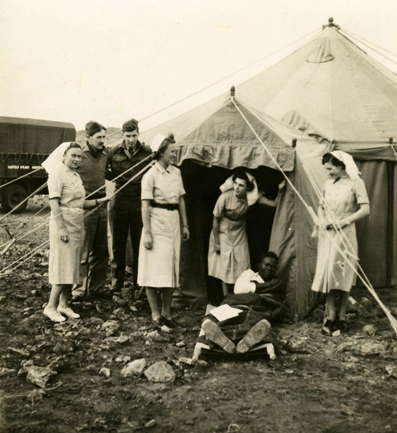On 24 May, we hosted a session on the theme of colonial medicine, chaired by Martin Thomas (University of Exeter). The session brought together Delphine Peiretti-Courtis, who recently published Corps Noirs et Médecins blancs. La fabrique du préjugé racial XIXe-XXe siècles (Paris : La Découverte, 2021)and Guillaume Lachenal, author of The Doctor Who Would Be King (Durham: Duke University Press, 2022). This thought-provoking session considered the tensions between medical power and violence, medical utopia and failures in the French Empire. It followed up an earlier session held in January, which began conversations on race, psychiatric discourses and practices during the ‘long’ Second World War (further details can be read here).


Delphine Peiretti-Courtis (TELEMME, Université d’Aix-Marseille) started the session with a fascinating paper on ‘Colonial medicine and black strength in the French colonies of Africa’, analysing two contradictory visions that coexisted in French medical discourses before and during the ‘long’ Second World War. On the one hand, French colonial doctors commented at length on African toughness, their resistance to pain and ‘innate’ immunity, often drawing on well-established tropes of the literature on slavery. Colonial doctors tried to measure and quantify this African resistance in the 1930s: Gustave Lefrou developed, for instance, the ‘robusticity index’ (‘indice de robusticité’, 1931) to assess the strength of black bodies. On the other hand, the early XXth century saw the emergence and development of discourses around African vulnerabilities and depopulation. These anxieties were heightened by the First World War, the mobilisation and departure of many colonial doctors and flu and typhus outbreaks. In her paper, Delphine explored how French colonial doctors responded to this perceived and real ‘sanitary crisis’ and Albert Sarraut’s injunction of ‘Faire du Noir’ (making black people). Delphine showed that French medical workers focused on the protection of African mothers, discrediting long standing positive vision of African maternity and encouraged vaccination campaigns (notably against yellow fever). She ended her paper with a very telling quote of the Free French medical doctor Adolphe Sicé, who considered that the ‘service’ of French colonial troops to France during the Second World War was ‘only’ a thanks to the nation that ‘healed’ and ‘civilised’ them.

Guillaume Lachenal (Sciences Po, Paris) followed this paper with a highly timely and rich reflection on medical power and its excesses. In The Doctor Who Would Be King (a title inspired by a reference to Kipling), Guillaume explores the history of a (failed) attempt at realising the dreams of 19th hygienist doctors of creating a medical government. Profoundly shaped by his meeting with Cameroonian historian Wang Sonné in 2002 (shortly before his death), Guillaume presented this book as an affective ethnography of the traces left by this medical experiment carried out by a Free French colonial army doctor Jean Joseph David in the low populated but vast region of Haut-Nyong in Cameroon. In the shadow of imperial rivalries (notably with Germany), Cameroon served as a showcase of French medical ‘successes’ against sleeping sickness in the inter-war years. Yet, the disease resisted in Haut-Nyong. To combat sleeping sickness, and the demographic and manpower crisis than unfolded, the region was entrusted to medical doctors in 1939 to the exclusion of any other form of colonial administrators. These doctors built several schools, roads, hospitals, and maternities, transforming villages, the agriculture (introducing cacao) and maternity (creation of mobile teams). Free French authorities celebrated this experiment (most importantly during the 1944 Brazzaville conference), but it was a blatant failure: the return of the collection of rubber and recourse to forced labour in the region led to rising rates of sleeping sickness and a worsening demographic situation. Free French doctors (most notably Henri Koch) were aware of their role in aggravating the sanitary situation in Cameroon. Guillaume ended his paper with evoking the complex traces and memories that this experiment left in Cameroon.


Discussions that followed probed the international and regional dimensions of the construction of racial prejudices, the issue of transfers of utopia and authority from French colonial doctors to African nurses, and the complex relationships between African local elites (including ‘chef de village’) and nurses of the sleeping sickness campaigns. The Haut-Nyong experiment fitted with the agenda of rural social medicine promoted by the League of Nations in the inter-war years, even though its ‘results’ did not reach the circle of these international experts in the aftermath of the Second World war. As Guillaume Lachenal observed, this session raised particularly timely questions in the context of the Covid-19 pandemic. If no historical comparison fits neatly with what happened since January 2020, reference to history can nonetheless point to some continuities in responses to pandemic, such as the ways in which these ‘crisis’ breed accusations around medical power as an intrinsically authoritarian power. The history of medical utopias suggests that we should be wary about the rhetoric and literature which often surrounds preparation plan for pandemic (since the mid 1990s). (Further reading : ‘Guillaume Lachenal and Gaëtan Thomas ‘Covid-19: When history has no lessons’).

